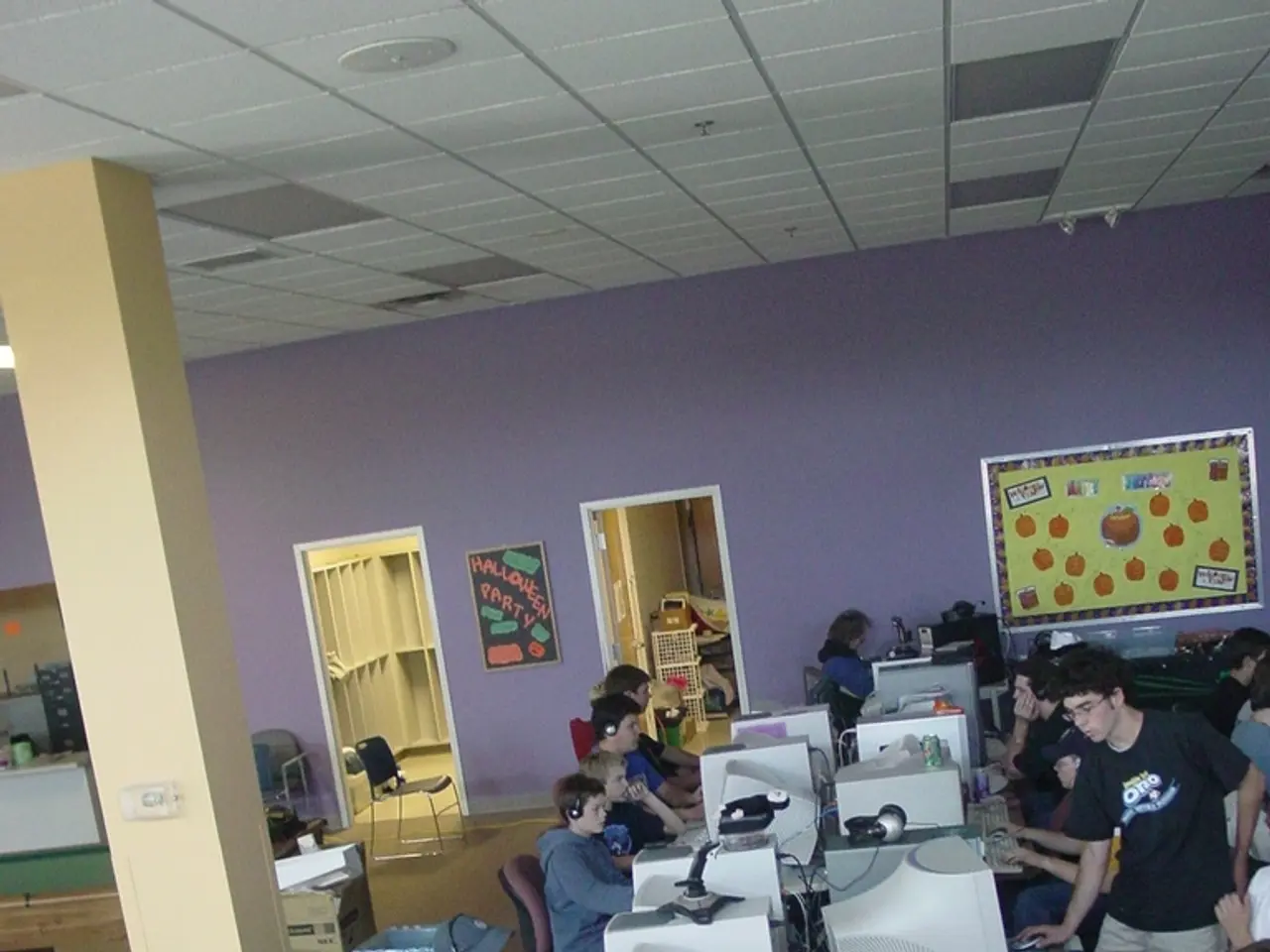Shifting Your Workspace for Enhanced Cognitive Capabilities?
In today's fast-paced work environment, mental agility and cognitive flexibility are essential for employees to adapt, problem-solve, and manage stress effectively. A variety of environmental factors play a significant role in shaping these cognitive abilities.
A dynamic and adaptable work environment that encourages creativity, learning from failures, and welcomes change is conducive to cognitive flexibility. Such workplaces foster resilience and agility, enabling employees to think differently and handle shifting priorities effectively [3].
Supportive cultures with open communication, mutual respect, and collaboration also contribute to mental health and cognitive resources like critical thinking and problem-solving. These psychological resources enhance self-efficacy, the belief in one's task capability, which mediates stress management and boosts mental agility [2][5].
Psychological stressors at work influence cognitive flexibility indirectly through mechanisms involving self-efficacy and critical thinking. Workplaces that reduce stress or help employees reframe stress as manageable challenges help maintain or improve cognitive flexibility and overall mental health [2].
Sleep quality is another crucial factor. Sleep deprivation negatively impacts cognitive flexibility by altering brain function, reducing activity in key brain regions such as the prefrontal cortex and hippocampus, affecting neurotransmitters like dopamine, and decreasing cerebral blood flow. These biological changes impair memory, reasoning, and the ability to switch tasks or consider alternative solutions in problem-solving [4].
To maintain cognitive flexibility, employees can be encouraged to observe and break rigid mental habits, question their own beliefs, and expose themselves to alternative viewpoints. This supports neuroplasticity, the brain's ability to adapt and reorganize [1].
Employee engagement, monitoring turnover, and conducting regular pulse surveys can help identify workplace health issues that may hinder cognitive performance, allowing timely interventions to maintain a supportive environment [3].
For remote workers, avoiding mental stagnation from the same desk setup is important. Changing posture or perspective can stimulate different thinking patterns. Moderate background noise, such as a cafe ambiance, can improve abstract thinking, while total silence can help with analytical tasks [6].
Adjusting the airflow, cracking a window, or using a fan can refresh the physiological and mental state. Suboptimal temperatures and stale air can reduce mental performance. Walking, especially in nature or novel settings, can improve creative ideation scores significantly [7].
Teams and leaders may enhance group productivity and engagement by using different spaces for brainstorming vs. analysis. Occasionally trying co-working spaces or libraries can inject novelty and external energy. Architectural variation and spatial complexity can stimulate exploratory behavior and divergent thinking [8].
Changing acoustic environments depending on the type of work may help improve output. Designating different zones for specific types of work can help boost agility. Environmental enrichment in the workplace improves performance on set-shifting tasks, a measure of cognitive flexibility [9].
In summary, a dynamic, supportive workplace that manages stress well, promotes open-mindedness, innovation, and ensures good sleep health among employees, best supports mental agility and cognitive flexibility crucial for adapting to today’s challenges at work [1][2][3][4][5]. Small changes weekly can maintain freshness without overstimulation, and students and learners may improve memory retrieval by switching study locations.
- Encouraging creativity, learning from failures, and adaptability in the workplace can contribute to cognitive flexibility, essential for managing shifting priorities effectively.
- Open communication, mutual respect, and collaboration in the workplace promote mental health and boost critical thinking and problem-solving abilities.
- Self-efficacy, the belief in one's task capability, plays a key role in stress management and maintaining cognitive flexibility, mediated by psychological resources.
- Sleep quality significantly impacts cognitive flexibility and performance, as sleep deprivation can impair memory, reasoning, and task-switching abilities.
- To maintain cognitive flexibility, employees can practice breaking mental habits, questioning personal beliefs, and adopting alternative perspectives to foster neuroplasticity.
- Regular workplace health surveillance can help identify issues that hinder cognitive performance, enabling timely interventions for a supportive environment.
- For remote workers, changing posture, perspective, and location can stimulate different thinking patterns, combat mental stagnation, and boost creative ideation scores.
- Environmental enrichment in the workplace, such as architectural variation, acoustic modification, and spatial complexity, can improve performance on cognitive flexibility tasks like set-shifting, promoting productivity and agility.




